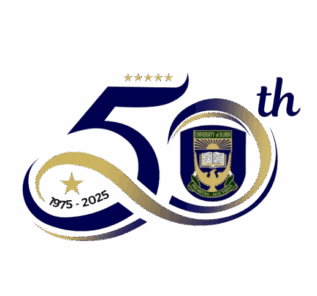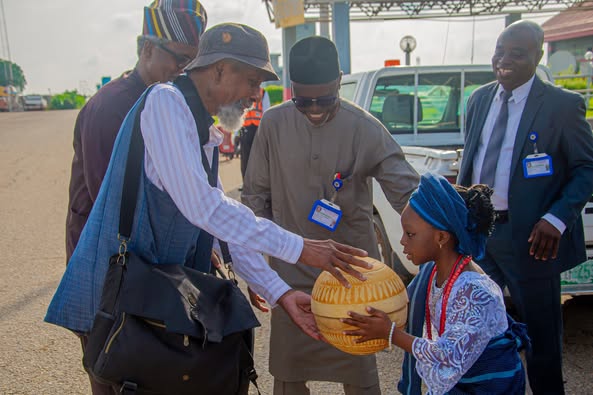World renowned playwright and Nobel Laureate, Prof. Wole Soyinka, has described Ilorin as a cultural melting pot, likening the Emirate City’s unique blending of diverse traditions and values to Abu Dhabi, capital of United Arab Emirates.
The prolific author made this observation on Monday (May 19, 2025) during his visit to the University of Ilorin to take part in events marking the institution’s maiden Culture Week, organised by its Centre for Cultural Studies and Creative Arts.
Speaking during a courtesy visit to the Vice Chancellor, Prof. Wahab Olasupo Egbewole, SAN, Prof. Soyinka described Ilorin as a meeting point of cultures, making it a highly significant location for hosting an event that celebrates cultural diversity.
He noted that the significance of the programme of the Centre for Cultural Studies and Creative Arts transcends the University and the host community, because it has broader implications for global understanding and peaceful coexistence.
Drawing parallels from his experience as a Professor of Arts and Literature at New York University, Abu Dhabi (NYUAD), the scholar of Comparative Literature highlighted the similarities between Ilorin and Abu Dhabi.
While pointing out that Abu Dhabi thrives on the expression of unity through various cultural traditions, a concept he considers fundamental to human existence, Prof. Soyinka said that since he began teaching in Abu Dhabi, he has come to see Ilorin as a microcosm of what the Emirate represents, a dynamic intersection of global cultures.
He commended the role of the University of Ilorin in promoting global ecumenism and pledged his commitment to contributing in his own way to the continuity and advancement of the Centre for Cultural Studies and Creative Arts. He added that his life’s work has always revolved around arts and culture.
Welcoming the icon of Literature to the University, earlier, the Vice Chancellor, Prof. Egbewole, said that the University does not take Prof. Soyinka’s visit for granted, describing it as a moment of pride and historical importance for the institution. As the leader of the university’s management team, he expressed the collective joy of the academic community at hosting a global cultural figure of Soyinka’s stature.
The Professor of Jurisprudence and International Law noted that the establishment of the Centre for Cultural Studies and Creative Arts was inspired by a vision that aligns closely with Soyinka’s lifelong dedication to Arts and Humanities.
The Vice Chancellor disclosed that the Centre was, in fact, conceptualised with figures like Prof. Soyinka in mind, saying that the initiative was borne out of genuine intentions to contribute meaningfully to cultural scholarship and global discourse.
Prof. Egbewole explained that the vision for the Centre had been nurtured over time and has now materialised with students enrolled in programmes across various levels, including Diploma, Undergraduate, Master, and Doctoral degrees.
The Vice Chancellor expressed optimism that the Centre would grow to become one of the foremost institutions of its kind globally, especially with the involvement and endorsement of Prof. Soyinka.
He also commended the Director of the Centre, Prof. Raymond Ogunade, for taking on the responsibility of leading the initiative and steering it towards early success.
In his own remarks, the Director of the Centre, Prof. Ogunade, expressed deep satisfaction at the realisation of his dream to bring Prof. Soyinka to the University of Ilorin. According to him, it was a natural desire upon assuming office as pioneer Director to ensure Soyinka’s involvement in the Centre’s development, given his immense contributions to the world of arts and letters.
He described the Nobel Laureate’s presence at the University as a personal and professional fulfillment, noting that Prof. Soyinka’s participation in the Centre’s activities marks a significant milestone in its history and growth.
The Vice Chancellor was joined to receive the international scholar by the Principal Officers, Council Members, Committee of Provost and Deans, Directors, staff of the Centre and other members of the University Community.

